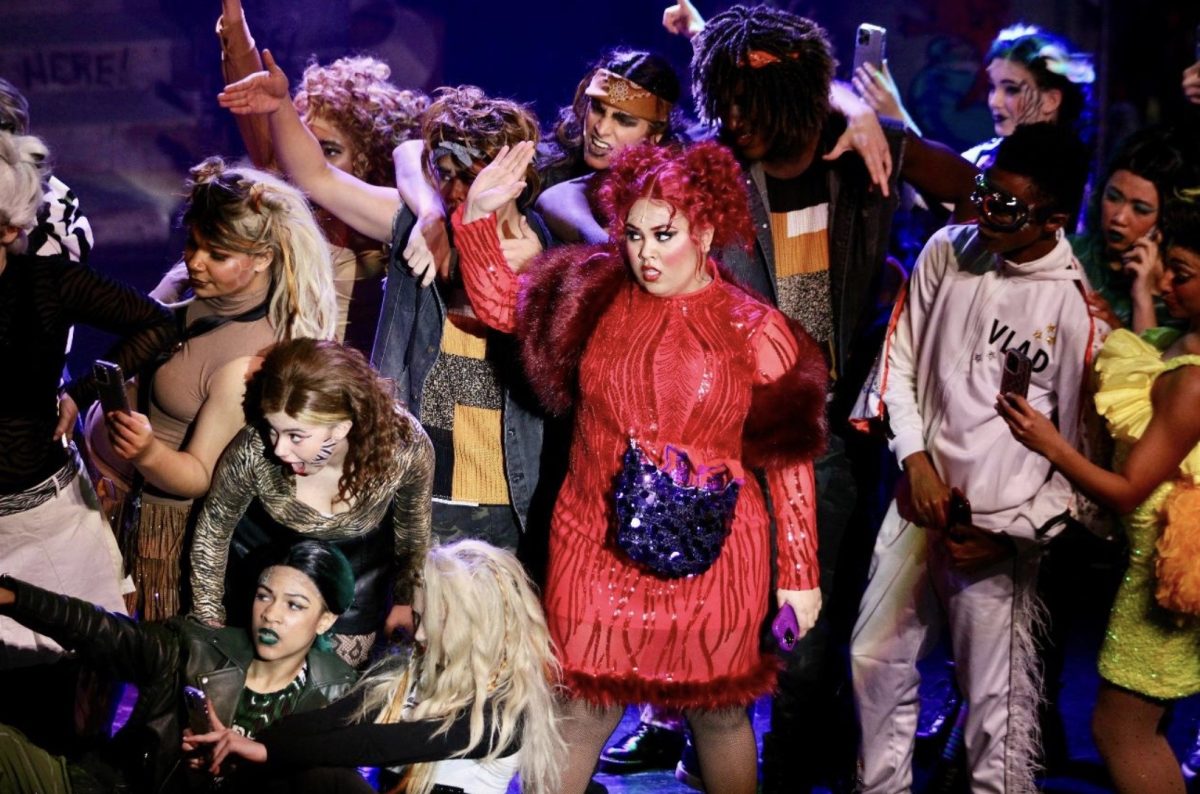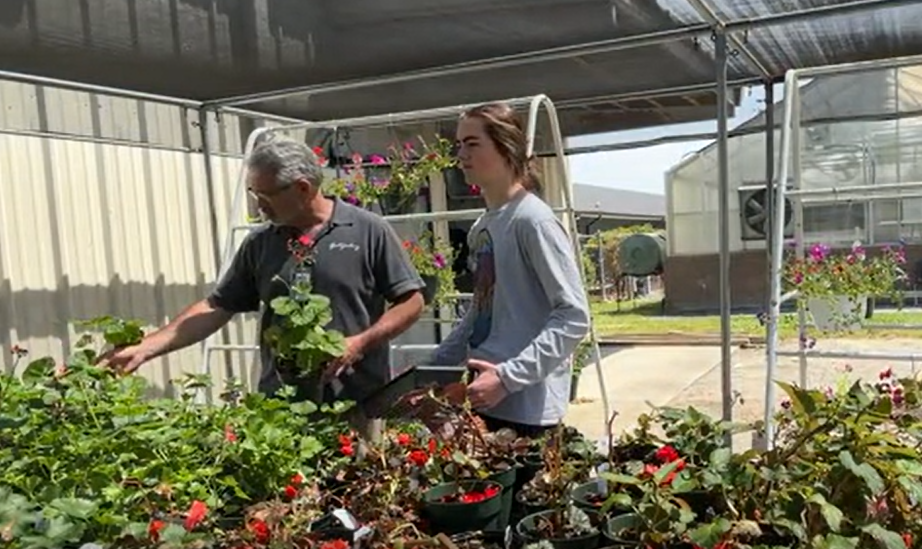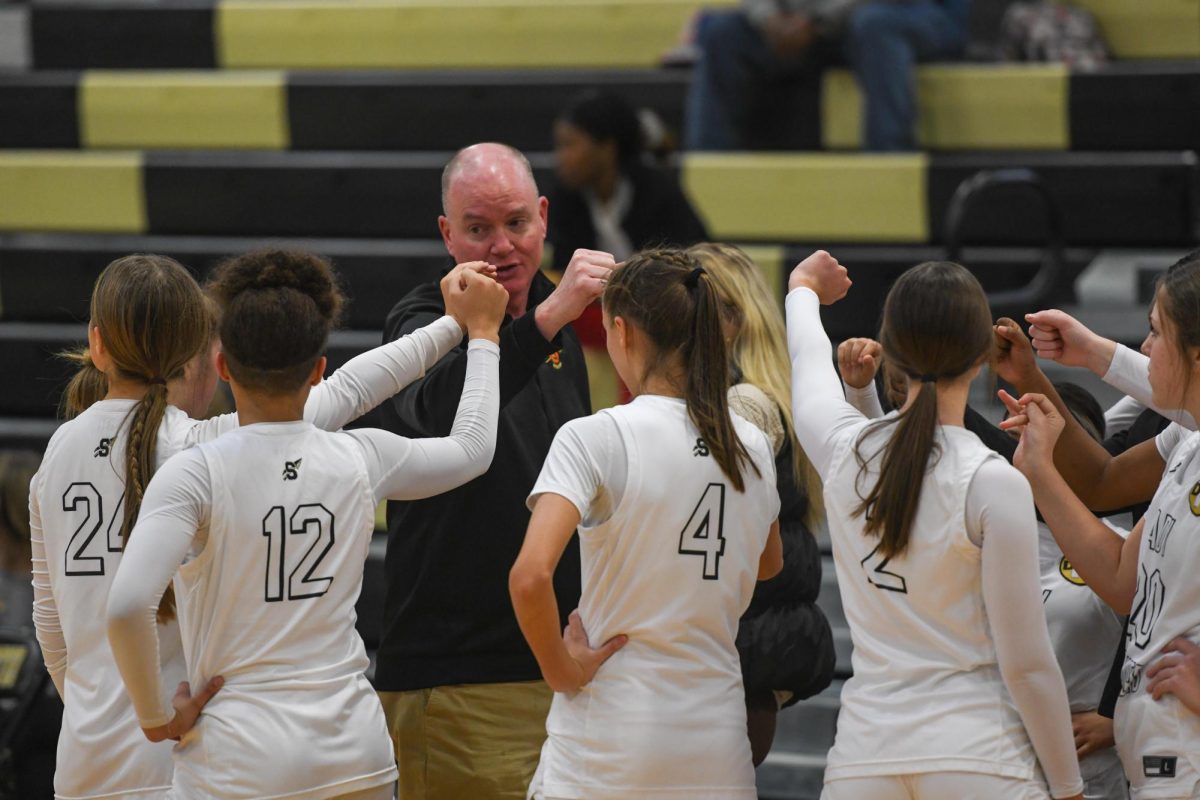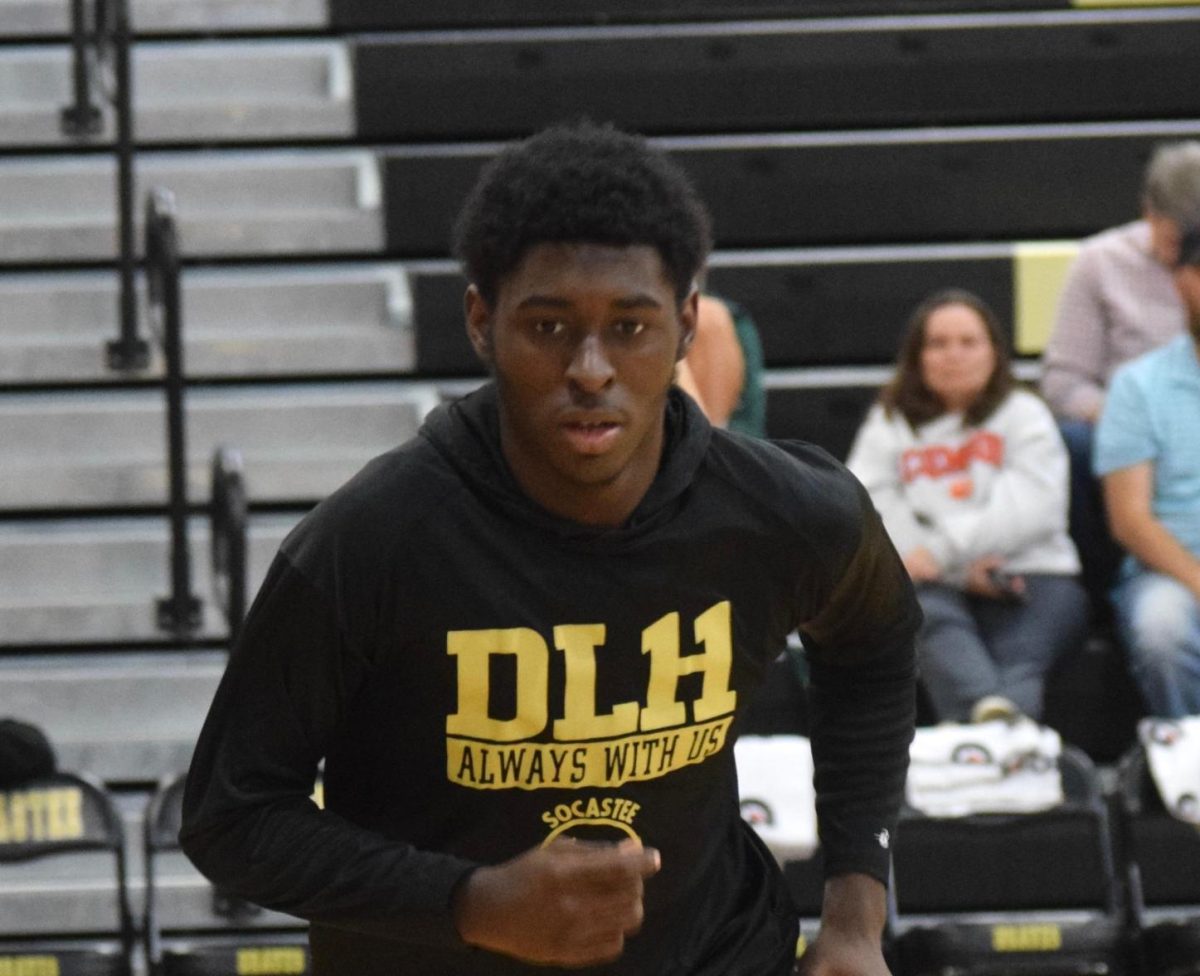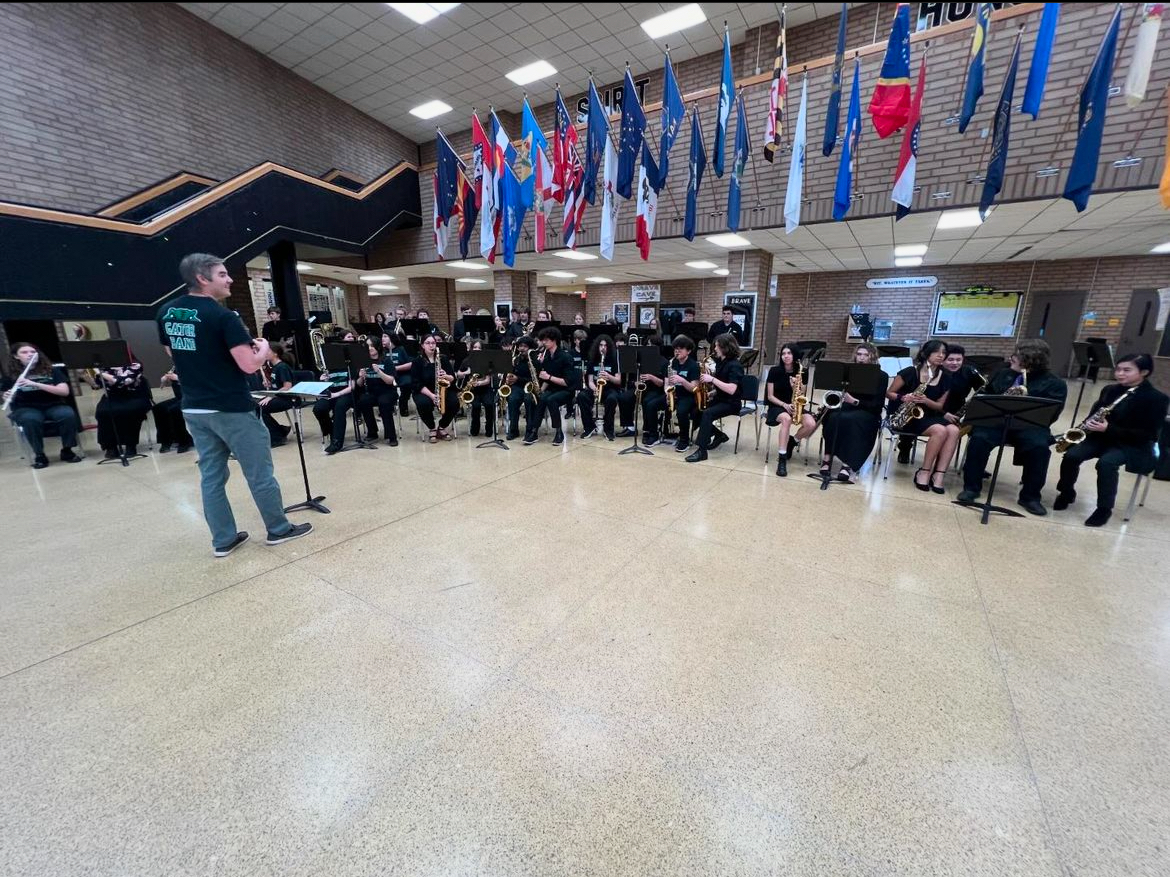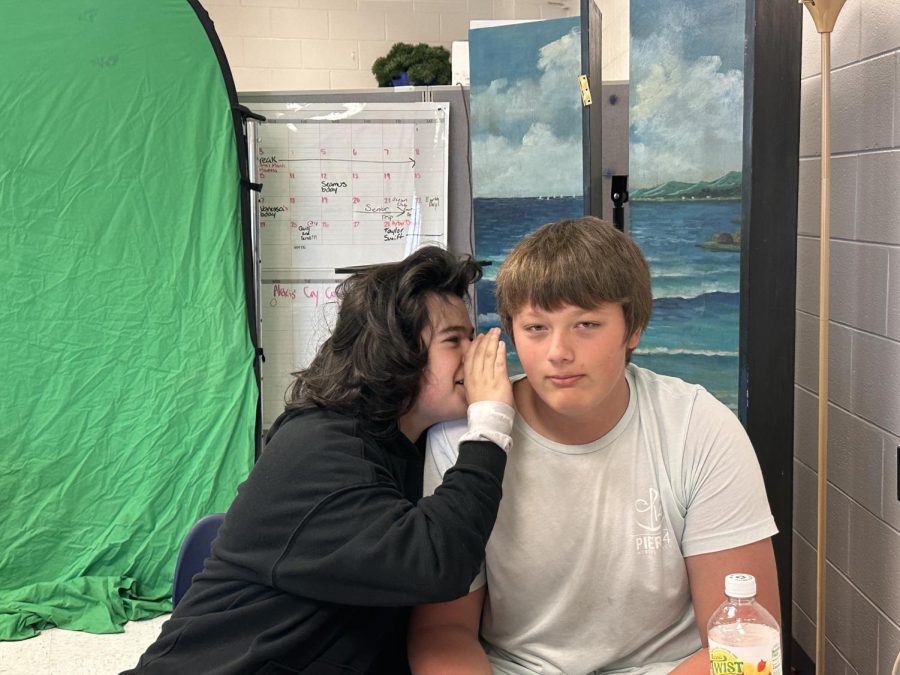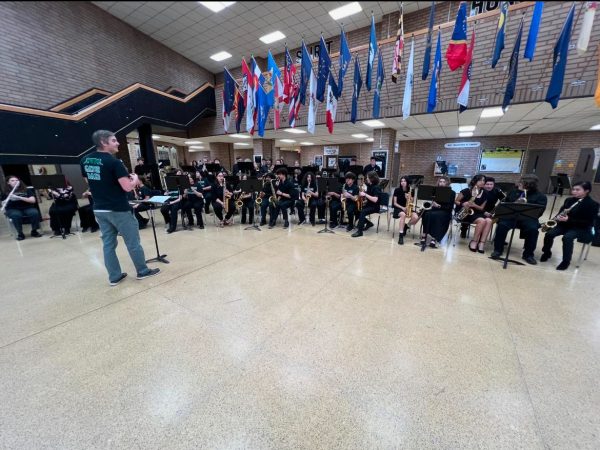Why Do Students Gossip?
Rumors Stem from Need to Bond, Fueled by Social Media
Freshmen Gabe Flores and Dale Wickberg whisper during English class. Students often find themselves unintentionally spreading gossip in the classroom.
When was the last time someone told you “OMG, have you heard…” and it ended with good news?
High Schools are plagued with gossip, and students often find themselves tied up in stories that aren’t true or have been altered for others’ entertainment. In a survey taken by 64 Socastee students, half say they hear rumors more than three times a day with 16 percent saying they hear them more than 11 times a day.
“There was apparently a rumor that I died,” sophomore Aidan Metts said. “I don’t know who started it, but it was hilarious to show up to school the next day.”
Psychologist Robin Dunbar pioneered the idea that gossip helped our ancestors survive. He compared gossip to how primates would groom each other as a means of bonding (Time.com).
“Our ancestors picked fleas and dirt off of one another to bond, but we now talk,” adds David Ludden, a professor of psychology at Georgia Gwinnett College. “[This is] where gossip comes in, because chit-chat is mostly talking about other people and conveying social information.”
Regardless of the source, students agree that rumors are harmful to everyone involved. Most of the time, students are unaware of the origin of a rumor, so they find it hard to deal with it at the source before they spread.
“Rumors are sometimes funny, but harmful dribble comes from people who don’t have all the facts or who have a vendetta,” Aidan said.
Freshman Anna Whittaker – who said people have spread rumors about her that she dyes her naturally red hair, among other things – agrees.
“They don’t feel great and have caused me to lose friends,” she said.

Although they are malicious, rumors are sometimes spread without malicious intent. In the school survey, 39 percent of students say they find themselves unintentionally spreading rumors all the time. People tell others about possible breakups, new relationships, and “situationships” (students who like each other) before knowing if what they’re saying is really a fact. The results of a 2015 study published in Social Neuroscience suggest that gossip is related to our desire to be seen positively by our peers and fit in socially.
Guidance Counselor Mr. Robb Urbaniak says gossip can affect a student’s performance at school.
“For most students going through that, that’s the most important thing to them, and then everything else takes a backseat to that,” he said. “Their attendance can be affected, their grades can be affected, their general overall behavior can be affected, and relationships with other students can be affected. So there’s a lot of things that play into that.”
He says that social media is the main catalyst for high school gossip.
“Social media is the worst of it because people put things out on social media that they feel like they can just hide behind and that they’re not accountable to,” he said.
The easiest way to stop it is to get off social media, he said.
“That’s the advice I would give to someone, but it’s hard for high school students to hear because social media is their life.”

Alexis is a senior who has been a part of the yearbook/newspaper staff for three years. She currently serves as the Editor-in-Chief of both publications....

Eduardo a is a senior who’s in his third year of yearbook and has a year’s experience in Journalism. He is currently the Editor-In-Chief of the yearbook...

